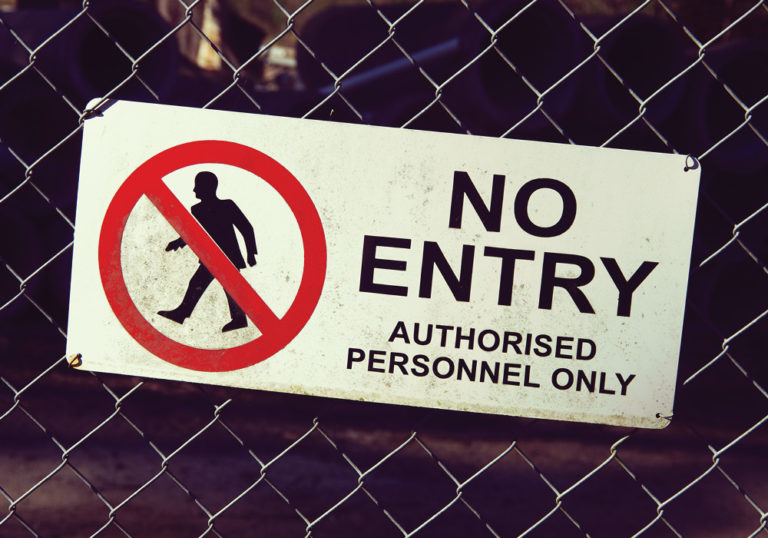Inhibit vs. Prohibit

Inhibit and prohibit are both verbs that mean to prevent or to forbid. Both verbs require a direct object to make sense, and they always involve two parties. Though both words have similar definitions, inhibit and prohibit aren’t interchangeable. In general, someone is inhibited by internal feelings or prohibited by an external source.
Inhibit
Inhibit is a verb with several meanings, including “to restrain, hinder, prohibit, or psychologically suppress.” Inhibition usually arises from internal pressure. For example, “Tom’s desire to avoid conflict inhibited him from speaking freely with his coworker.” In this case, Tom prefers avoiding a fight over sharing his opinion. Since Tom’s motivations are internal, the coworker may have no idea that he’s restraining himself.Inhibit may also refer to physical actions being hindered. Take this example: “The tight coat inhibited Angie’s ability to raise her arms.” Angie is still able to move, but the coat limits her movement.Uninhibited is the opposite of inhibited. It often describes someone who’s carefree. It also refers to a physical state of freedom: “Uninhibited by a collar or leash, the dog was free to chase the birds in the backyard.”
Prohibit
Prohibit is a transitive verb that means to forbid or prevent. Unlike inhibit, the word prohibit means that an action is being completely prevented. For example: “Angie’s coat was so tight, it prohibited any arm movement.” In this case, Angie isn’t able to move her arms at all.Prohibit is often used to describe the actions of authority figures. It can explain a rule or law. For example, “School rules prohibit cellphone use during class.” A street sign may say “Parking prohibited,” while a sign in a building lobby might say “Smoking prohibited by law.” All of these cases mean that cell phone use, parking in a certain area, or smoking are completely forbidden by their given authority figures, and can’t be done at all.
While unprohibited is a valid word, it isn’t commonly used. If something is unprohibited, you could describe it as “legal, allowed or permitted.” For example, “Smoking is permitted in designated areas.”
As a general rule, it’s safe to use inhibit when you’re talking about internal motivations or an action that’s restricted or limited. It’s generally best to use prohibit when talking about pressure from an external source (like the law) or an action that’s completely prevented.